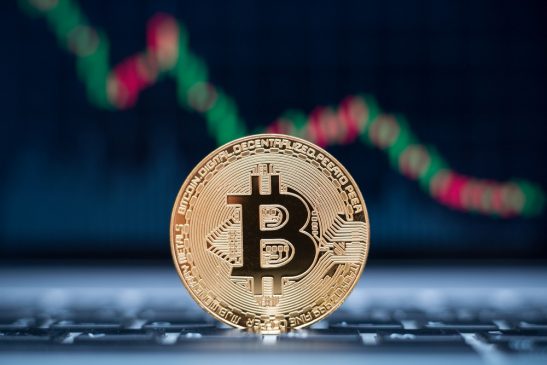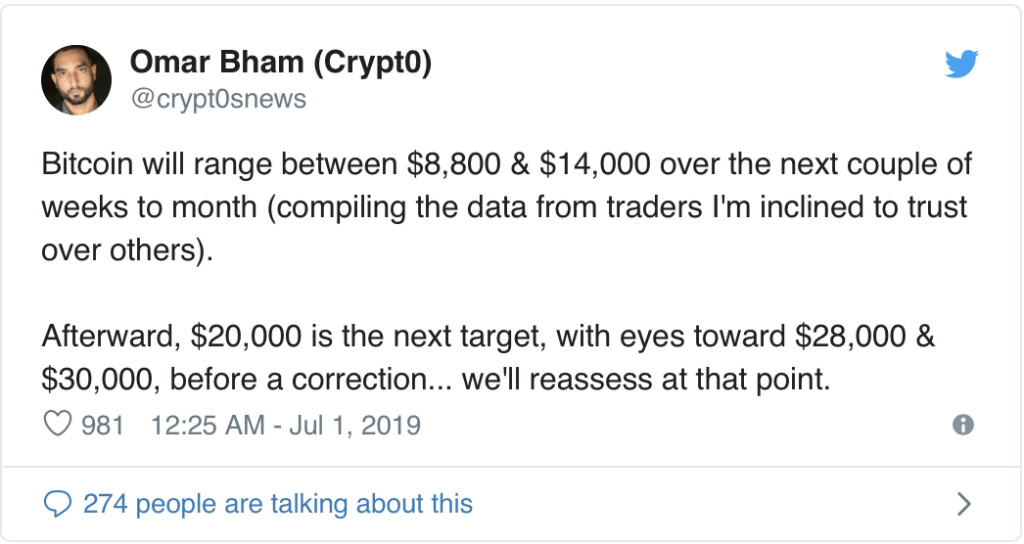The price of bitcoin (BTC) is going down despite registering its most incredible quarter performance since December 2017.
The BTC-to-dollar instrument was trading at $10,875 on Monday, 07:50 UTC, down more than 8.5 percent on a 24-hour adjusted timeframe. The move downhill dragged the bitcoin’s market capitalization close to $193.41 billion. At its highest, the cap was $313.82 billion.
Over the past five days, the bitcoin price has witnessed a sharp decline of more than 21 percent from its 2019 high. The loss, nevertheless, looks dwarfed in front of the cryptocurrency’s overall gains this year, including a 162.79 percent jump seen upon the Q2/2019 close this June.
In retrospective, the bitcoin-to-dollar exchange rate went from a low of $4,051.53 in April to as high as $13,868.44 in June, bringing its maximum quarter leap close to 242 percent. At its current price, bitcoin is still down 44.7 percent from its all-time high of $19,697, according to data provided by Coinbase exchange.
Meanwhile, the Q2/2019 returns posted by the US benchmark S&P 500 were 3.44 percent, its estimations going down due to macroeconomic factors such as the US-China trade war. At the same time, bitcoin’s so-called rival Gold registered 7.39 percent profits in Q2/2019.
Between Pullbacks and Rallies
The latest price pullback in the bitcoin market has opened traders to potential short targets below $10,000. According to Alex Krüger, a prominent market analyst, the cryptocurrency could fall to as deep as $9,600. At the same time, a fellow analyst Omar Bham believes BTC could test $8,800 as support.
“Bitcoin will range between $8,800 & $14,000 over the next couple of weeks to a month,” he said following the price correction.
Bham added that BTC would continue eyeing $20,000 as its medium-term upside target while keeping a broader focus on the $28,000 and $30,000 for the next significant pullback.
The Great Bitcoin Bullish Bias
What’s probably backing the bullish sentiments in the bitcoin market is a dovish Federal Reserve and halvening. The decision of the US central bank to possibly cut interest rate in July has injected negative sentiments in the US dollar index. That could send investors to haven assets like gold, as well as bitcoin.
On the other hand, another cut — but that of BTC supply — is scheduled next year, which many believe would be bullish for the cryptocurrency based on the classic demand-supply economic model.
“Bitcoin’s current inflation rate is approximately 3.76%,” Mati Greenspan, senior market analyst at Tel Aviv-based eToro, told CNBC. “In May of next year, it’s scheduled to be reduced to 1.8%.”
Click here for a real-time bitcoin price chart.





